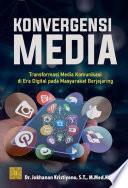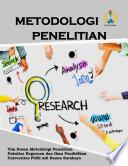
Komunikasi Bisnis
Dalam kehidupan sehari-hari, setiap orang tidak dapat dilepaskan dari dunia komunikasi, mulai dari bangun tidur hingga akan tidur kembali. Sebelum berangkat kerja atau sekolah, berbagai kegiatan komunikasi mereka lakukan, seperti mendengarkan radio atau music dalam format CD (Compact Disc) atau DVD (Digital Versatile Disc), menonton acara televisi, membaca koran, tabloid, atau majalah, atau bercengkrama dengan anggota keluarga. Kegiatan komunikasi yang dilakukan dapat menggunakan berbagai media komunikasi yang ada, baik media komunikasi nonelektronik / konvensional maupun media komunikasi elektronik. Media komunikasi nonelektronik antara lain adalah penggunaan Bahasa lisan, Bahasa isyarat/Bahasa tubuh, dan anek media komunikasi yang menggunakan kertas (aneka macam surat menyurat, surat kabar, majalah, dan tabloid). Sedangkan media komunikasi elektronik antara lain adalah media audio-visual (televisi), interkom, radio panggil (pager), Internet (situs Web dan e-mail (electronic mail), teleconference, video conference, telepon biasa (fixed line), dan telepon genggam / seluler (handphone). Buku ini merupakan salah satu buku rujukan untuk mahasiswa fakultas ekonomi dan bisnis dan juga dapat menjadi pegangan para pelaku usaha, Praktisi dan akademisi serta masyarakat luas yang ingin mengetahui konsep-konsep komunikasi bisnis. Kritikan yang bersifat konstruktif edukatif dari para pembaca, sangat kami harapkan.
- ISBN 13 : 6235408730
- ISBN 10 : 9786235408736
- Judul : Komunikasi Bisnis
- Pengarang : Dr. Hj. Siti Mujiatun, S.E., M.M., Dr. Rahmayati, M.E.I., S.E., M.M., Dr. Rahmayati, M.E.I., S.E., M.M., Dr. Rahmayati, M.E.I.,
- Kategori : Antiques & Collectibles
- Penerbit : Merdeka Kreasi Group
- Bahasa : id
- Tahun : 2023
- Halaman : 220
- Google Book : http://books.google.co.id/books?id=OVnJEAAAQBAJ&dq=intitle:komunikasi+bisnis+digital&hl=&source=gbs_api
-
Ketersediaan :
Buku ini merupakan salah satu buku rujukan untuk mahasiswa fakultas ekonomi dan bisnis dan juga dapat menjadi pegangan para pelaku usaha, Praktisi dan akademisi serta masyarakat luas yang ingin mengetahui konsep-konsep komunikasi bisnis.









